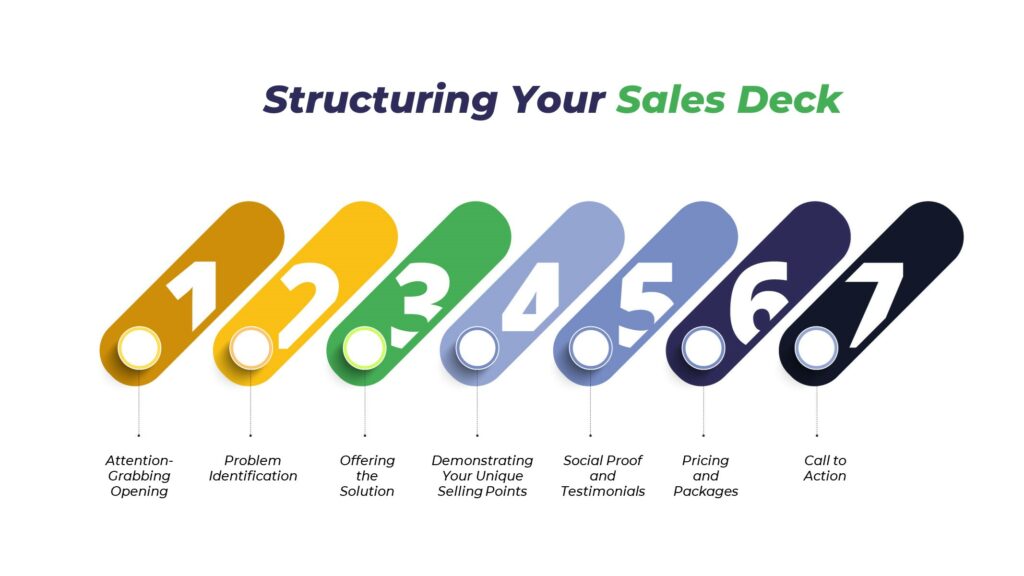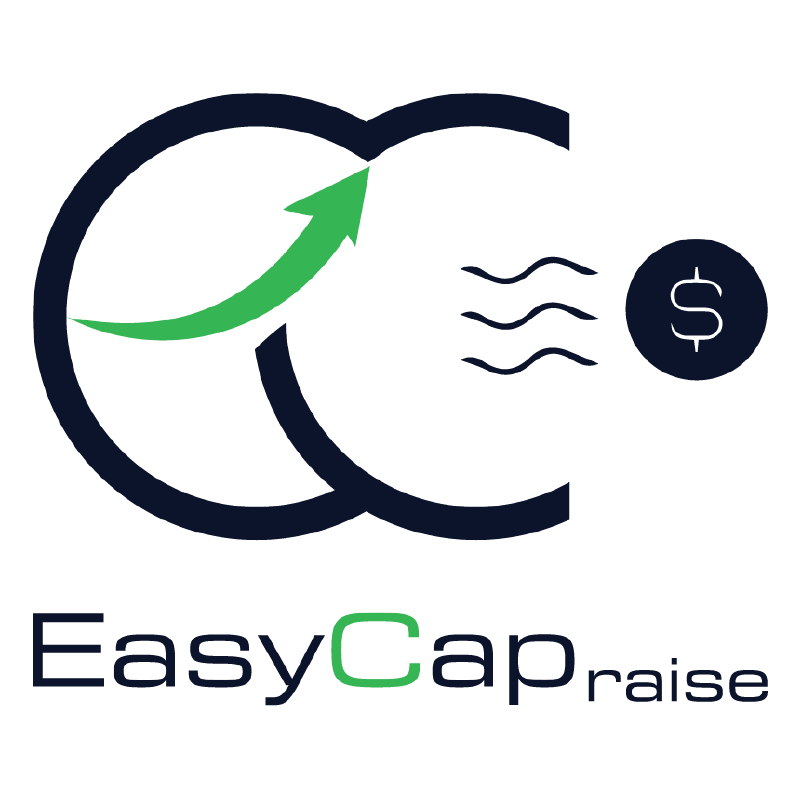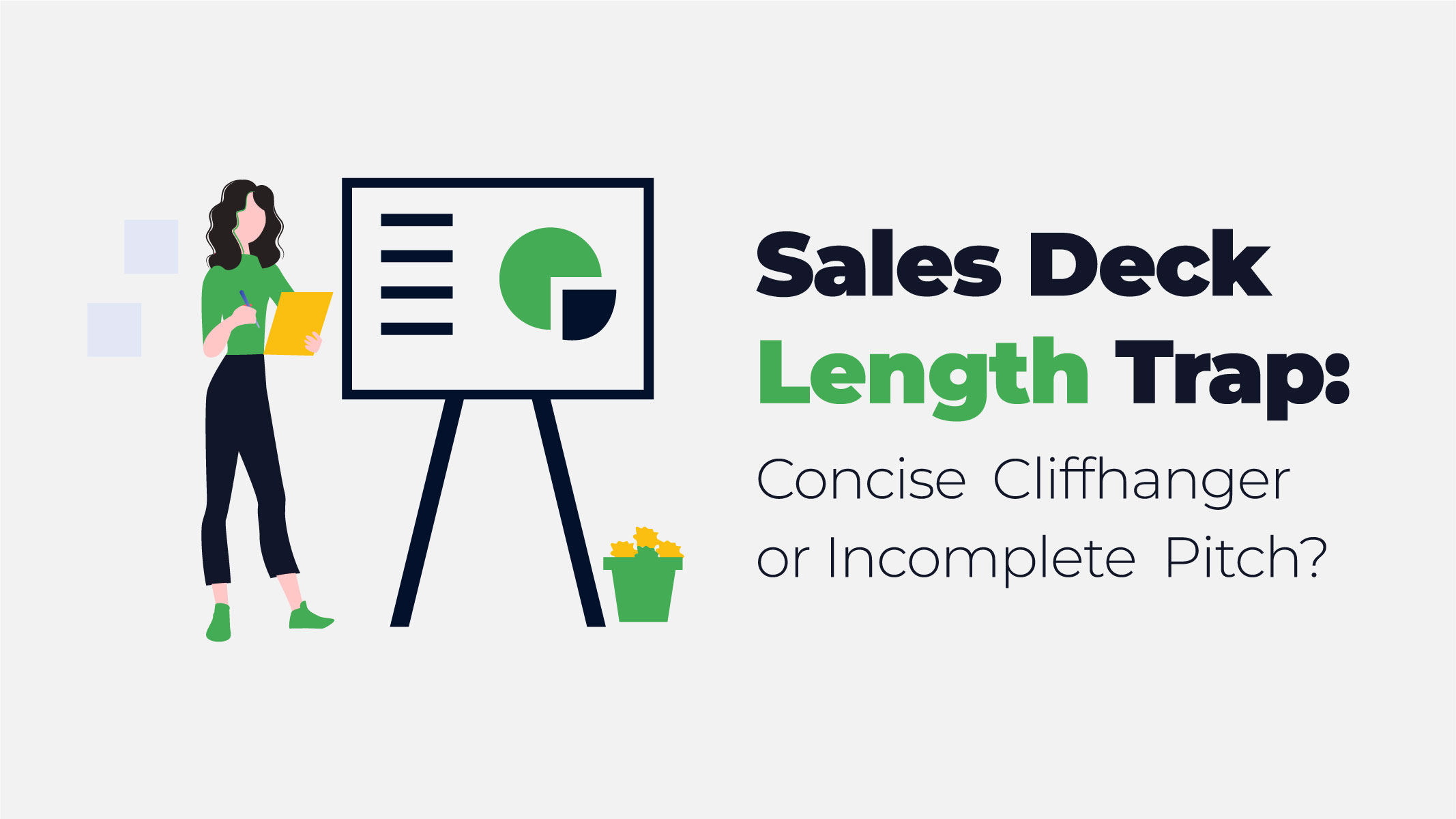Crafting the Ultimate Best Sales Deck: The Key to Closing More Deals and Boosting Revenue
[read_meter]
In today’s competitive business landscape, having the best sales deck, a compelling sales deck is crucial for closing more deals and driving revenue growth. A well-crafted sales deck can effectively communicate your value proposition, showcase your products or services, and convince potential clients to take action. In this article, we will explore the essential elements of an ultimate sales deck and provide you with actionable tips to create a winning presentation that resonates with your audience.
Understanding Your Target Audience
Before diving into the creation of your sales deck, it’s crucial to have a clear understanding of your target audience. Who are your ideal customers? What are their pain points, challenges, and goals? By knowing your audience inside out, you can tailor your messaging and content to resonate with them effectively.
Structuring Best Sales Deck

To create a well-structured sales deck, follow these essential steps:
Attention-Grabbing Opening
Begin your Successful Sales Deck with a compelling and attention-grabbing opening. Use a powerful headline or a thought-provoking question that immediately captures your audience’s interest. This will set the tone for the rest of your presentation and help establish a strong connection with potential clients or investors.
Problem Identification
Identify the pain points and challenges your target audience faces, and also highlight the cost associated with these problems. Show that you understand their needs and frustrations, as well as the financial or operational impact these challenges have on their business. By empathizing with their situation and quantifying the cost of the problem, you can effectively position your product or service as the ideal solution that provides tangible benefits and a positive return on investment.
For example, if you’re offering project management software, you could highlight the challenges of manual task tracking, missed deadlines, and inefficient communication. Additionally, you can emphasize the potential costs of project delays, missed opportunities, and the time wasted on administrative tasks. By showcasing the financial and productivity benefits of your solution, you can effectively demonstrate the value it brings to your audience’s business.
Remember, understanding the cost of the problem not only helps you empathize with your audience but also enables you to showcase the clear advantages and savings your solution offers.
Offering the Solution
After identifying the pain points and challenges your target audience faces, it’s time to present your solution and explain how it effectively addresses those problems. Clearly outline the features and benefits that make your offering unique and valuable. Here’s how you can do it:
Start by introducing your product or service as the solution to the identified problems. Explain how it directly addresses the pain points and challenges your audience is experiencing. Emphasize the key features and capabilities that set your offering apart from competitors.
For example, if you’re offering project management software, highlight how it streamlines task management, improves collaboration, and enhances overall project efficiency. Explain how it enables real-time communication, provides a centralized platform for task tracking, and offers advanced reporting and analytics. These features can help your audience overcome the challenges of missed deadlines, poor communication, and inefficient project coordination.
In addition to the features, clearly communicate the benefits that your product or service brings to the table. Highlight how it saves time, improves productivity, reduces costs, enhances team collaboration, and ultimately leads to better project outcomes. Paint a clear picture of how your solution can transform their business operations and deliver tangible results.
To further support your explanation, consider using visual aids such as screenshots, product demos, or customer testimonials. This helps your audience visualize how your solution works and how it has positively impacted other businesses.
Remember to present your solution in a way that resonates with your audience. Speak their language, address their specific pain points, and emphasize the value that your product or service brings. By doing so, you can effectively showcase why your offering is the ideal solution for their needs.
Demonstrating Your Unique Selling Points
Highlight the unique selling points that differentiate you from your competitors. Whether it’s superior functionality, exceptional customer service, or cutting-edge technology, emphasize what makes your product or service stand out.
Social Proof and Testimonials
Leverage social proof by including testimonials, case studies, or success stories from satisfied customers. This helps build credibility and trust in your offering.
Pricing and Packages
Transparently present your pricing and different package options. Clearly communicate the value and benefits that each package offers, helping your potential clients make an informed decision.
Call to Action
End your sales deck with a clear and compelling call to action. Guide your audience towards the next steps, whether it’s scheduling a demo, signing up for a trial, or making a purchase.
Designing an Engaging Visual Presentation
The visual design of your sales deck plays a crucial role in capturing and retaining your audience’s attention. Here are some tips for creating an engaging visual presentation:
Choosing the Right Colors and Fonts
Select a color scheme that aligns with your brand and evokes the desired emotions. Use fonts that are easy to read and maintain consistency throughout your presentation.
Utilizing High-Quality Images and Graphics
Incorporate high-quality images and graphics that visually enhance your message. Use visuals that are relevant to your product or service and which resonate with your audience.
Keeping the Layout Clean and Organized
Ensure that your presentation has a clean and organized layout. Avoid clutter and excessive text. Use bullet points, subheadings, and spacing to improve readability.
Keeping the Content Concise and Compelling
When writing the content for your sales deck, keep it concise, compelling, and easy to understand. Use the following strategies to engage your audience:
Use Powerful Headlines and Subheadings
Craft attention-grabbing headlines and subheadings that pique curiosity and drive interest. These should summarize the key points and encourage further reading.
Tell a Story
Incorporate storytelling techniques to captivate your audience. Paint a vivid picture of how your product or service can transform their lives and overcome their challenges.
Incorporate Data and Statistics
Support your claims with relevant data and statistics. This adds credibility to your presentation and helps your audience visualize the impact of your offering.
Use Visuals to Support Your Points
Complement your content with visuals such as charts, graphs, and diagrams. Visual representations can simplify complex information and make it easier for your audience to digest.
Ready to boost your chances of success in raising capital and finding investors for your business? Partner with Easy Capraise, your trusted capital raising and sales deck creation experts. Take the first step towards achieving your funding goals by contacting us today.
Practicing and Perfecting Your Delivery
Delivering your sales deck with confidence and precision is essential for success. Follow these tips to refine your delivery:
Rehearse Your Presentation
Practice your sales deck multiple times to ensure a smooth and polished delivery. Familiarize yourself with the content, timing, and transitions between slides.
Engage and Connect with Your Audience
Maintain eye contact, use confident body language, and engage your audience throughout the presentation. Ask questions, encourage participation, and address any concerns or objections.
Handle Questions and Objections Confidently
Be prepared to handle questions and objections from your audience. Anticipate potential concerns and have well-thought-out responses that address them effectively.
FAQs
How long should a sales deck be?
A sales deck should be concise and to the point. Aim for around 10-15 slides to maintain your audience’s interest and engagement.
Should I include pricing in my sales deck?
Yes, it’s important to be transparent about pricing. Clearly present your pricing and package options to help potential clients make informed decisions.
Can I use templates for my sales deck?
While templates can be a helpful starting point, it’s best to customize your sales deck to align with your brand and target audience. Tailor the content and design to effectively convey your unique value proposition.
How often should I update my sales deck?
Regularly review and update your sales deck to reflect any changes in your offerings, market trends, or customer feedback. Aim to update it at least every six months or as needed.
Is it necessary to practice my sales deck before presenting?
Absolutely! Practicing your sales deck helps you deliver a confident and impactful presentation. Rehearse your content, timing, and delivery to ensure a seamless and engaging experience for your audience.
Conclusion
Crafting the ultimate sales deck requires a strategic approach that considers your target audience, value proposition, and design elements. By following the outlined steps and incorporating engaging content and visuals, you can create a compelling presentation that captures your audience’s attention, closes more deals, and boosts your revenue.
Contact us
Good to have you here! If you have any queries, please leave your message. Our team will reach out soon:)
.








